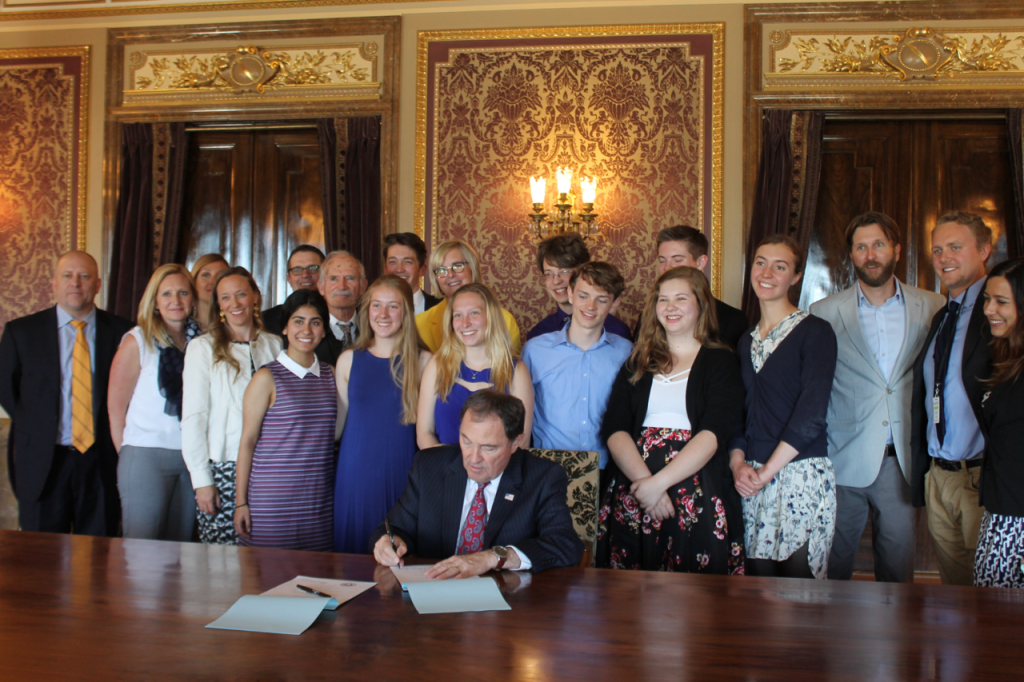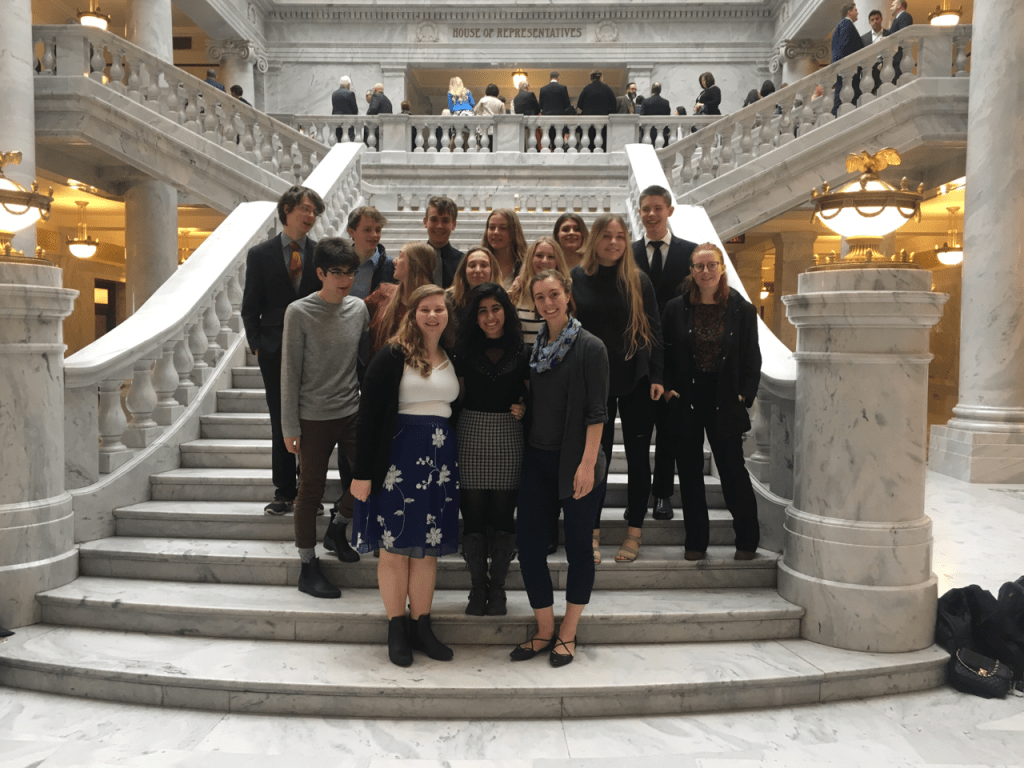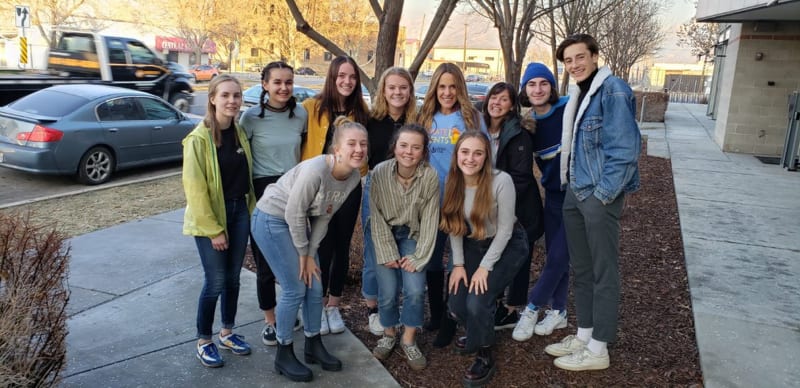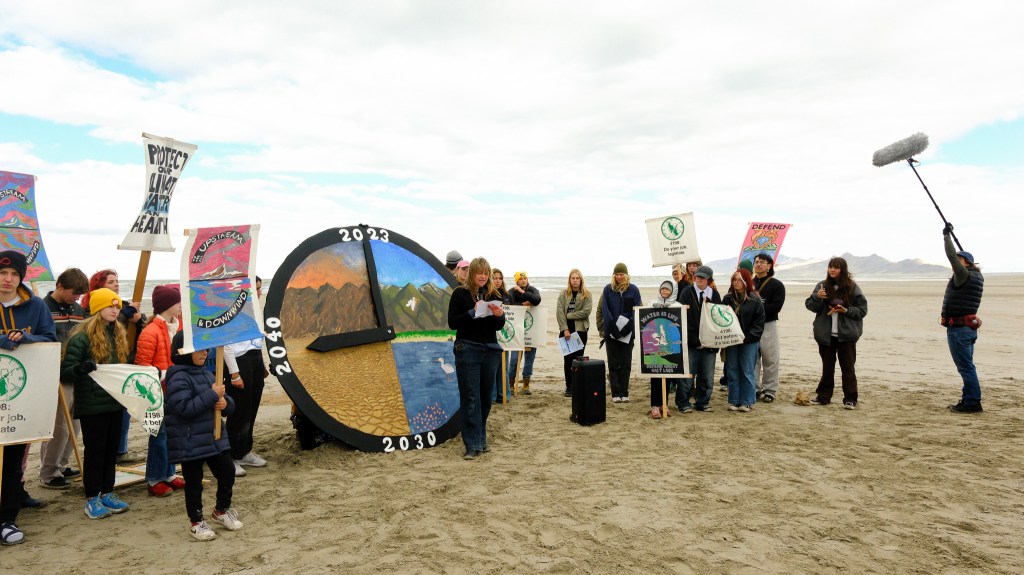About UYES
UYES is a youth-led organization that empowers young people in Utah to mobilize around climate and environmental issues through education, legislation, and direct action.
Our mission is to connect students to environmental advocacy by cultivating reciprocal relationships between Utah’s youth, environmental organizations, and community leaders. We utilize systems-based thinking to pragmatically address local environment issues and normalize political participation. Utah Youth Environmental Solutions is a non-partisan network.
UYES was founded in 2017 to educate the Utah State Legislature about Climate Change. In 2018, UYES wrote and passed HCR004, the Concurrent Resolution on Economic and Environmental Stewardship. This was the first official recognition of climate change by the state of Utah.


UYES has had many successes over the years, including getting the Salt Lake City School District to pass a 100% Clean Energy Resolution and supporting the Granite Clean Energy team in winning a grant to further their work towards a resolution.

The Education and Training team holds an annual Environmental Justice Training Program to empower high schoolers within local environmental issues and draw wider attention to the topics youth care about.


